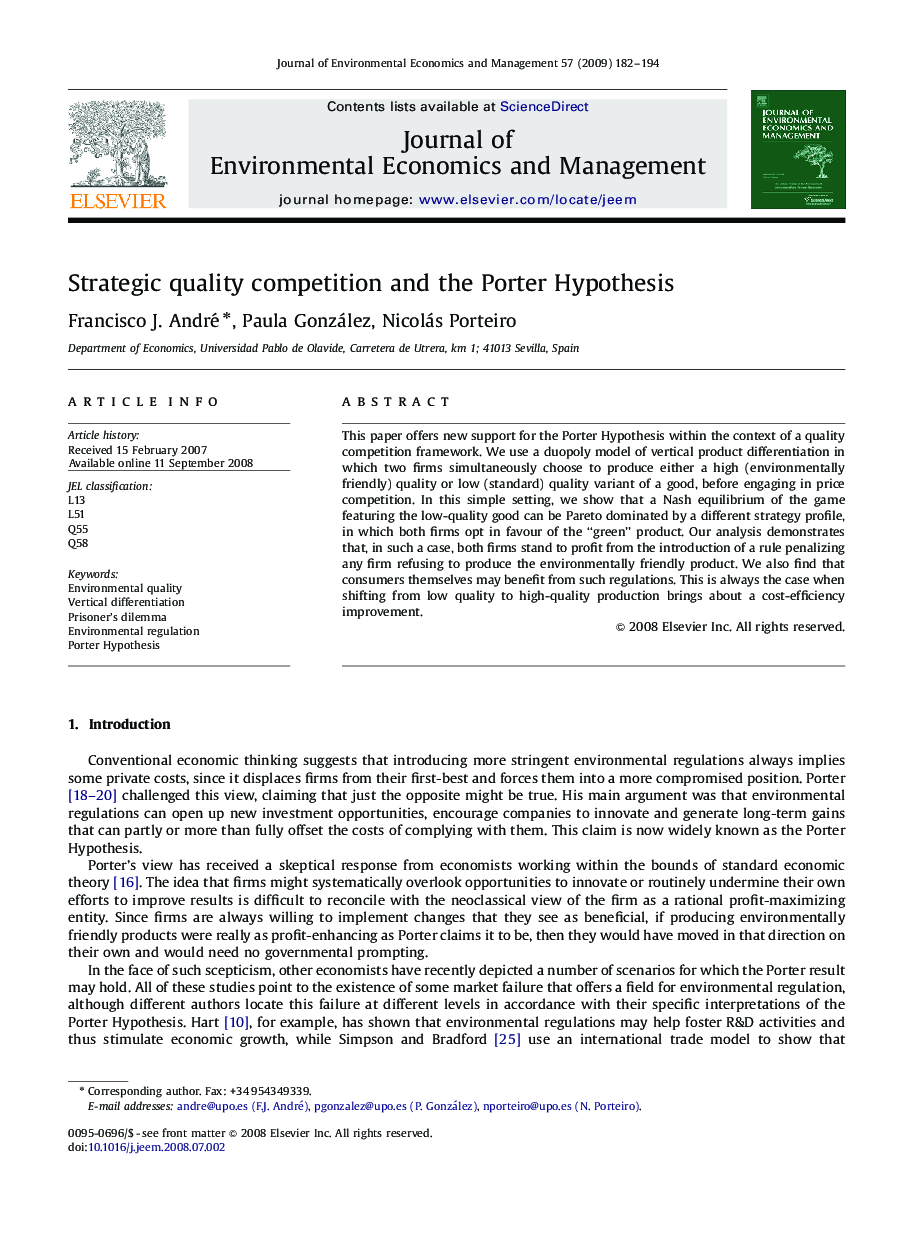| کد مقاله | کد نشریه | سال انتشار | مقاله انگلیسی | نسخه تمام متن |
|---|---|---|---|---|
| 958873 | 929090 | 2009 | 13 صفحه PDF | دانلود رایگان |

This paper offers new support for the Porter Hypothesis within the context of a quality competition framework. We use a duopoly model of vertical product differentiation in which two firms simultaneously choose to produce either a high (environmentally friendly) quality or low (standard) quality variant of a good, before engaging in price competition. In this simple setting, we show that a Nash equilibrium of the game featuring the low-quality good can be Pareto dominated by a different strategy profile, in which both firms opt in favour of the “green” product. Our analysis demonstrates that, in such a case, both firms stand to profit from the introduction of a rule penalizing any firm refusing to produce the environmentally friendly product. We also find that consumers themselves may benefit from such regulations. This is always the case when shifting from low quality to high-quality production brings about a cost-efficiency improvement.
Journal: Journal of Environmental Economics and Management - Volume 57, Issue 2, March 2009, Pages 182–194